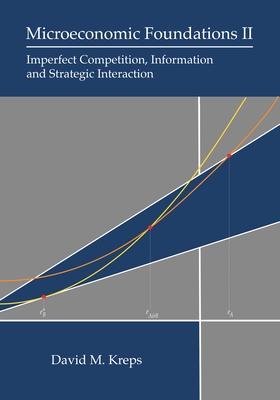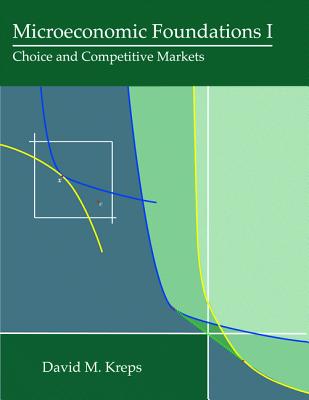图书简介
Written for liberal arts students and based on the belief that learning to solve problems is the principal reason for studying mathematics, Karl Smith introduces students to Polya’s problem-solving techniques and shows them how to use these techniques to solve unfamiliar problems that they encounter in their own lives. Through the emphasis on problem solving and estimation, along with numerous in-text study aids, students are assisted in understanding the concepts and mastering the techniques. In addition to the problem-solving emphasis, THE NATURE OF MATHEMATICS is renowned for its clear writing, coverage of historical topics, selection of topics, level, and excellent applications problems. Smith includes material on such practical real-world topics as finances (e.g. amortization, installment buying, annuities) and voting and apportionment. With the help of this text, thousands of students have "experienced" mathematics rather than just do problems--and benefited from a writing style that boosts their confidence and fosters their ability to use mathematics effectively in their everyday lives.
Prologue: Why Math? A Historical Overview.
1. THE NATURE OF PROBLEM SOLVING.
The Nature of Problem Solving. Problem Solving. Inductive and Deductive Reasoning. Scientific Notation and Estimation. Summary.
2. THE NATURE OF SETS.
Sets, Subsets, and Venn Diagrams. Operations with Sets. Applications of Sets. Finite and Infinite Sets. Summary.
3. THE NATURE OF LOGIC.
Deductive Reasoning. Truth Tables and the Conditional. Operators and Laws of Logic. The Nature of Proof. Problem Solving Using Logic. Logic Circuits (Optional). Summary.
4. THE NATURE OF NUMERATION SYSTEMS.
Early Numeration Systems. Hindu-Arabic Numeration System. Different Numeration Systems. Binary Numeration System. History of Calculating Devices (Optional). Summary.
5. THE NATURE OF NUMBERS.
Natural Numbers. Prime Numbers. Integers. Rational Numbers. Irrational Numbers. Groups, Fields, and Real Numbers. Discrete Mathematics. Cryptography (Optional). Summary.
6. THE NATURE OF ALGEBRA.
Polynomials. Factoring. Evaluation, Applications, and Spreadsheets. Equations. Inequalities. Algebra in Problem Solving. Ratios, Proportions, and Problem Solving.
Percents. Modeling Uncategorized Problems. Summary.
7. THE NATURE OF GEOMETRY.
Geometry. Polygons and Angles. Triangles. Similar Triangles. Right Triangle Trigonometry (Optional). Mathematics, Art, and Non-Euclidean Geometries (Optional Sections). Summary.
8. THE NATURE OF MEASUREMENT.
Perimeter. Area. Surface Area, Volume and Capacity. Miscellaneous Measurements (Optional). U.S.-Metric Conversions. Summary.
9. THE NATURE OF NETWORKS AND GRAPH THEORY.
Euler Circuits and Hamiltonian Cycles. Trees and Minimum Spanning Trees. Topology and Fractals. Guest Essay: “What Good Are Fractals?” . Summary.
10. THE NATURE OF GROWTH.
Exponential Equations. Logarithmic Equations. Applications of Growth and Decay. Summary.
11. THE NATURE OF SEQUENCES, SERIES, AND FINANCIAL MANAGEMENT.
Interest. Installment Buying. Sequences. Series. Annuities. Amortization. Summary of Financial Formulas. Summary.
12. THE NATURE OF COUNTING.
Permutations. Combinations. Counting without Counting. Rubik’s Cube and Instant Insanity (Optional). Summary.
13. THE NATURE OF PROBABILITY.
Introduction to Probability. Mathematical Expectation. Probability Models. Calculated Probabilities. GUEST ESSAY: \"EXTRASENSORY PERCEPTION\". \"Bayes’ Theorem\". The
Binomial Distribution (Optional). Summary.
14. THE NATURE OF STATISTICS.
Frequency Distributions and Graphs. Descriptive Statistics. The Normal Curve. Correlation and Regression. Sampling (Optional). Summary.
15. THE NATURE OF GRAPHS AND FUNCTIONS.
Cartesian Coordinates and Graphing Lines. Graphing Half-Planes. Graphing Curves. Conic Sections.Functions. Summary.
16. THE NATURE OF MATHEMATICAL SYSTEMS.
Systems of Linear Equations. Problem Solving with Systems. Matrix Solution of a System of Equations. Inverse Matrices. Modeling with Linear Programming (Optional). Summary.
17. THE NATURE OF VOTING AND APPORTIONMENT.
Voting. Voting Dilemmas. Apportionment. Apportionment Flaws. Summary.
18. THE NATURE OF CALCULUS (OPTIONAL).
What Is Calculus? Limits. Derivatives. Integrals. Summary.
Epilogue: Why Not Math? Mathematics in the Natural Sciences, Social Sciences, and in the Humanities.
Appendices.
A. Glossary.
B. Selected Answers.
C. Index.
Trade Policy 买家须知
- 关于产品:
- ● 正版保障:本网站隶属于中国国际图书贸易集团公司,确保所有图书都是100%正版。
- ● 环保纸张:进口图书大多使用的都是环保轻型张,颜色偏黄,重量比较轻。
- ● 毛边版:即书翻页的地方,故意做成了参差不齐的样子,一般为精装版,更具收藏价值。
关于退换货:- 由于预订产品的特殊性,采购订单正式发订后,买方不得无故取消全部或部分产品的订购。
- 由于进口图书的特殊性,发生以下情况的,请直接拒收货物,由快递返回:
- ● 外包装破损/发错货/少发货/图书外观破损/图书配件不全(例如:光盘等)
并请在工作日通过电话400-008-1110联系我们。
- 签收后,如发生以下情况,请在签收后的5个工作日内联系客服办理退换货:
- ● 缺页/错页/错印/脱线
关于发货时间:- 一般情况下:
- ●【现货】 下单后48小时内由北京(库房)发出快递。
- ●【预订】【预售】下单后国外发货,到货时间预计5-8周左右,店铺默认中通快递,如需顺丰快递邮费到付。
- ● 需要开具发票的客户,发货时间可能在上述基础上再延后1-2个工作日(紧急发票需求,请联系010-68433105/3213);
- ● 如遇其他特殊原因,对发货时间有影响的,我们会第一时间在网站公告,敬请留意。
关于到货时间:- 由于进口图书入境入库后,都是委托第三方快递发货,所以我们只能保证在规定时间内发出,但无法为您保证确切的到货时间。
- ● 主要城市一般2-4天
- ● 偏远地区一般4-7天
关于接听咨询电话的时间:- 010-68433105/3213正常接听咨询电话的时间为:周一至周五上午8:30~下午5:00,周六、日及法定节假日休息,将无法接听来电,敬请谅解。
- 其它时间您也可以通过邮件联系我们:customer@readgo.cn,工作日会优先处理。
关于快递:- ● 已付款订单:主要由中通、宅急送负责派送,订单进度查询请拨打010-68433105/3213。
本书暂无推荐
本书暂无推荐















